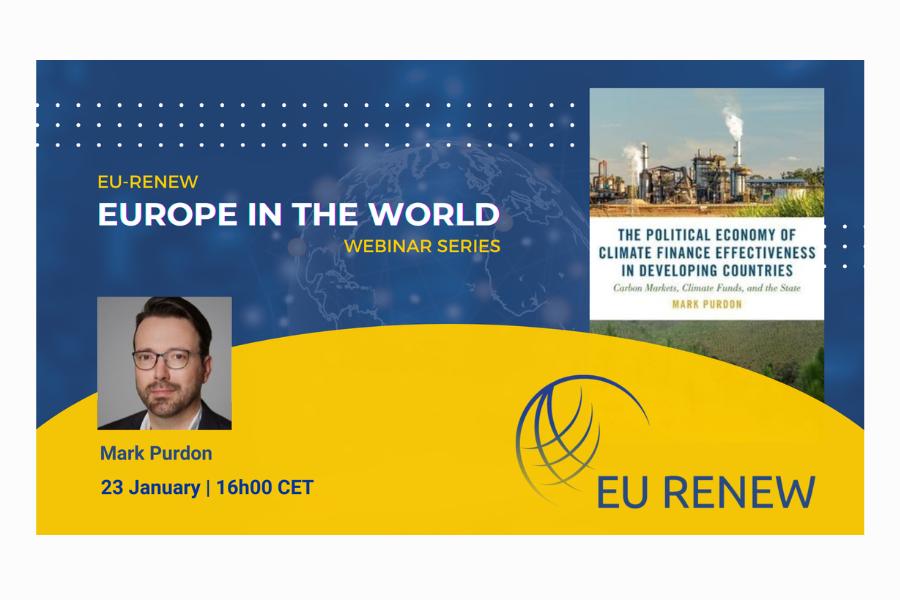
Call for applications for a doctoral contract at Sciences Po in policy evaluation (LIEPP)
14 January 2025
The Just Transition in the European Union
27 January 2025Prof. Dr. Mark Purdon (Université du Québec à Montréal) joins the EU-RENEW Webinar Series to present his new book, The Political Economy of Climate Finance Effectiveness in Developing Countries (Oxford UP, 2024). Sarah Thompson (European Chair for Sustainable Development and Climate Transition, Sciences Po and PhD Candidate at Université Libre de Bruxelles) will offer some reflections and questions for the author before an audience Q&A. Dr. Kari Otteburn (Leuven Centre for Global Governance Studies) will moderate.
Event details
Date: 23 January 2025
Time: 4-5pm CET
Register here
About the book
This book contributes to debates about the effectiveness of climate finance instruments for engaging developing countries on climate change mitigation. It is based on empirical investigation of the effectiveness and implementation of the Clean Development Mechanism (CDM), Reducing Emissions from Deforestation and Forest Degradation (REDD+) as well as Nationally Appropriate Mitigation Actions (NAMAs) in Tanzania, Uganda, and Moldova from 2008 to 2018. While the CDM emerged as the main climate finance instrument for engaging developing countries under the Kyoto Protocol, the carbon market approach it embodied would largely be replaced by a new array of climate finance instruments based on climate funds. It is argued that this is part of a broader shift away from liberal environmentalism since the 2008 global financial crisis toward a new set of global environmental norms described as developmental environmentalism. The main argument advanced in the book is that despite this shift in global environmental norms, differences in state development policy paradigms and development interests explain enduring patterns of CDM, REDD+, and NAMA effectiveness and implementation in Tanzania, Uganda, and Moldova over the period investigated. All three climate finance instruments were consistently more effectively implemented in Uganda and Moldova than Tanzania, despite differences in state capacity between East Africa and a country of former Soviet Union. Such findings might inform the design of international and transnational efforts to engage developing countries on climate change mitigation by emphasizing the importance that needs to be accorded to domestic politics, particularly the state.
About the author
Mark Purdon is a professor at the École des sciences de la gestion at the Université du Québec à Montréal (ESG UQAM). He is an expert in the emerging field of comparative environmental politics, which combines elements of comparative politics, comparative public policy and international relations. He is particularly interested in the relationship between climate change policy and political economy, with extensive research experience in both the developing and developed worlds. Mark has also actively participated in nearly every Conference of the Parties (COP) of the UNFCCC since 2005.


